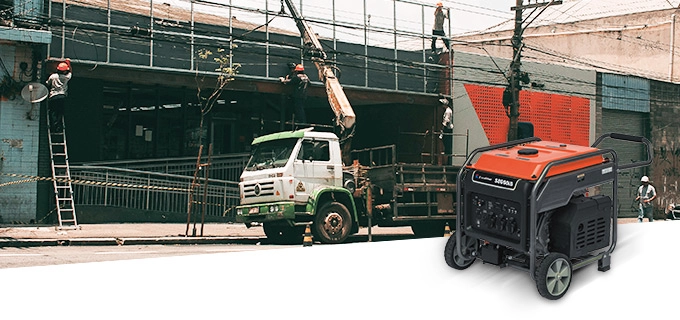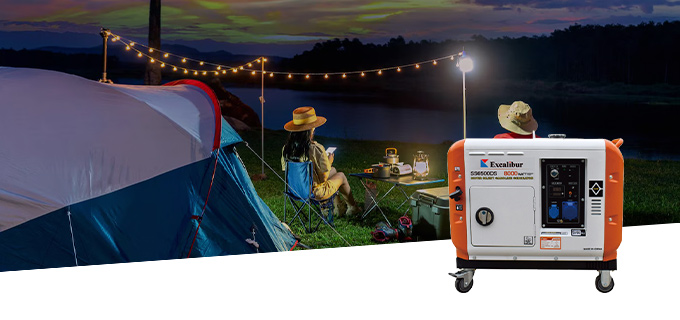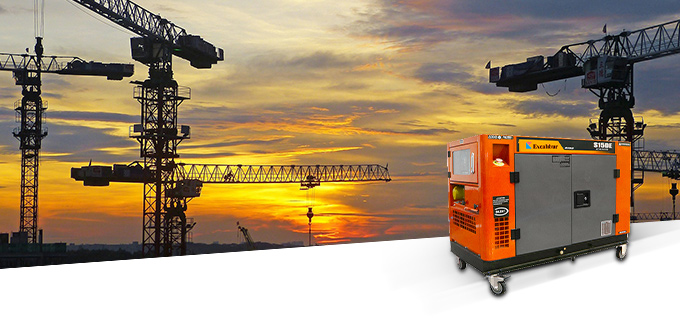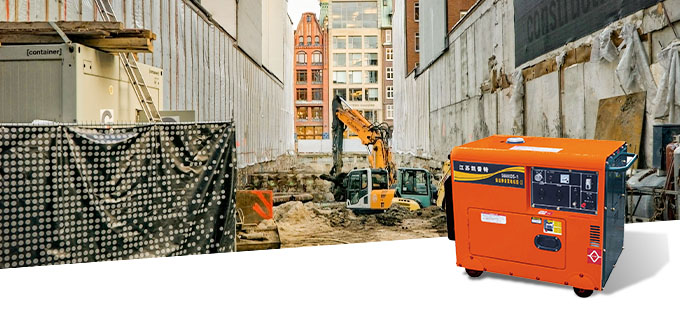In the realm of portable power generators, the choice between inverter generators and conventional generators is a critical decision that hinges on various factors, including power needs, portability, fuel efficiency, and the nature of the electrical devices you intend to power. In this detailed exploration, we will delve into the distinctions between inverter and conventional generators, aiding you in making an informed decision based on your specific power requirements.
Operating Principles
Inverter Generators
Inverter generators operate on a more sophisticated principle than conventional generators. They generate alternating current, which is then converted to direct current with advanced electronics and back to alternating current. This process produces a stable and clean power output, making it suitable for electronics where the inverter generator is sensitive.
Conventional Generators
Conventional generators, also known as open-frame or standard generators, generate AC power directly through the engine’s alternator. While they provide reliable power, the output may have slight voltage fluctuations, which can be less suitable for sensitive electronics.
Electrical energy quality
Inverter Generators
Conventional Generators
While conventional generators offer stable power output, their waveform may have more voltage fluctuations and harmonic distortions. This can potentially cause issues with sensitive electronics, making them better suited for powering tools and appliances with less intricate electronic components.
Size and Portability
Inverter Generators
Inverter generators are known for their compact and lightweight designs. The incorporation of advanced technology allows for a smaller and more portable form factor, making them ideal for camping, RVing, and other on-the-go applications.
Conventional Generators
Conventional generators are often bulkier and heavier compared to their inverter counterparts. They typically come with an open-frame design and larger engines, making them less convenient for transport. These generators are commonly used in situations where mobility is not a primary concern.
Fuel Efficiency
Inverter Generators
Fuel efficiency is a significant advantage of inverter generators. Their engines can adjust their speed based on the electrical demand, running at lower speeds during lighter loads and increasing speed when more power is required. This adaptive capability results in reduced fuel consumption and extended run times on a single tank.
Conventional Generators
Conventional generators tend to run at a constant speed, regardless of the electrical load. This can lead to higher fuel consumption, especially during lighter loads when the engine is not operating at its most efficient level. However, modern conventional generators may incorporate features to improve fuel efficiency.
Noise Levels
Inverter Generators
Inverter generators are renowned for their quiet operation. The variable engine speed, along with sound-dampening technology, contributes to significantly lower noise levels. This makes them an excellent choice for environments where noise is a concern, such as camping sites or residential areas.
Conventional Generators
Conventional generators, by virtue of their design, tend to be noisier than inverter generators. The steady engine speed can result in a constant, higher level of noise. While some models come equipped with noise reduction features, they may still be louder than their inverter counterparts.
Application and Use Cases
Inverter Generators
Inverter generators excel in scenarios where clean power, portability, and quiet operation are paramount. They are well-suited for camping, outdoor events, RVing, and powering sensitive electronic devices. Additionally, inverter generators are increasingly popular as backup power sources for homes, providing a reliable and stable power supply during outages.
Conventional Generators
Conventional generators are versatile and find applications in various settings. They are commonly used for construction sites, powering tools, and providing backup power for homes and businesses. While they may not be the best choice for sensitive electronics, they offer reliable and robust power for a range of equipment.
Cost
Inverter Generators
Compared with previous generators, the initial cost of inverse conversion generators is higher than usual. Advanced technology and features are leading to higher prices. However, many users find the added benefits, such as clean power and portability, justify the investment.
Conventional Generators
Conventional generators are generally more budget-friendly when it comes to the initial purchase. If the primary focus is on providing power for tools, appliances, or other non-sensitive equipment, a conventional generator may be a cost-effective choice.
Maintenance
Inverter Generators
Inverter generators often require less maintenance compared to conventional generators. The advanced electronic components contribute to a more streamlined and efficient operation, reducing the frequency of maintenance tasks.
Conventional Generators
Conventional generators may require more regular maintenance due to their simpler design and constant engine speed. Regular oil changes, spark plug replacements, and air filter maintenance are common tasks for conventional generators.
Technology Behind Inverter Generators
Explore the intricacies of the technology that powers inverter generators. Understand how the electronic circuitry works to produce stable and clean power output. Delve into the advancements that make inverter generators a technological marvel in portable power generation.
Making the Right Choice for Your Power Needs
Provide a comprehensive guide on how to evaluate your specific power needs and choose between inverters and conventional generators. Discuss considerations such as the types of devices you plan to power, the importance of clean power, the need for portability, and any budget constraints.
In summary, the choice between inverters and conventional generators involves tradeoffs based on personal preference and specific use cases. Each type has its strengths and is better suited for certain applications. By understanding the key distinctions outlined in this guide, consumers can make an informed decision that aligns with their unique power generation needs.




